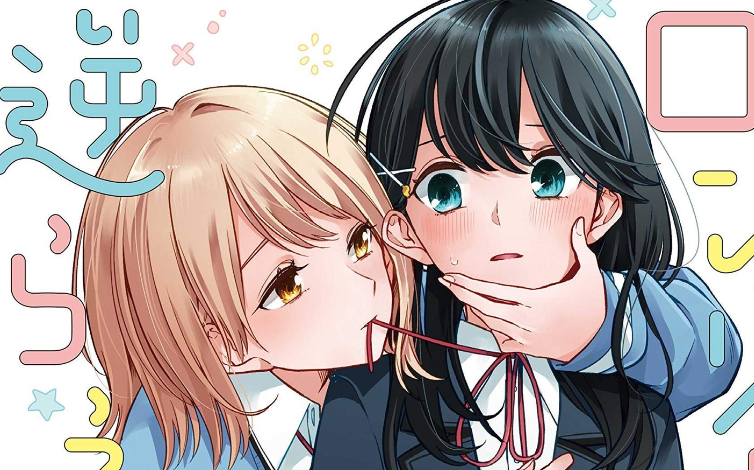Kekkyoku Sonna Kimi Ga Suki: All You Need To Know

The origins of “Kekkyoku Sonna Kimi Ga Suki” can be traced back to the Japanese literature scene in the early 20th century. The phrase was first used by famous Japanese author Junichiro Tanizaki in his novel “Makioka Sisters,” published in 1943. In this book, one of the characters proclaims their love for another with the words “kekkyoku sonna kimi ga suki,” which struck a chord with readers and became widely popular.
Meaning behind “Kekkyoku Sonna Kimi Ga Suki”
At first glance, this phrase may seem simple and straightforward – expressing one’s love for another person. However, there is a deeper meaning behind it that has captured the hearts of many. In Japanese culture, there is an unspoken rule of not explicitly stating your feelings or emotions towards someone else. Instead, people often use subtle gestures or indirect phrases
Popularity
The phrase “Kekkyoku Sonna Kimi Ga Suki” has gained immense popularity in recent years, especially among young people. The phrase, which roughly translates to “Eventually I Love Someone Like You,” has become a beloved expression of love and affection in Japanese culture.
One of the main reasons for its popularity is its usage in popular media such as manga, anime, and dramas. The phrase first gained attention when it was featured in the hit manga and anime series “Nana.” The main character, Nana Osaki, often uses this phrase to express her feelings for her love interest. This usage struck a chord with audiences and quickly became a trending topic on social media platforms.
Moreover, the phrase’s simple yet powerful meaning resonates with many people who have experienced unrequited love or are struggling to confess their feelings. It captures the idea that sometimes we may not realize our true feelings until it’s too late, but eventually, we will come to love someone like them.
In addition to its emotional impact, the phrase’s catchy melody and rhythm make it perfect for song lyrics. Several popular artists such as Yui Horie and miwa have incorporated “Kekkyoku Sonna Kimi Ga Suki” into their songs. These songs have topped music charts and further solidified the phrase’s popularity among fans.
Exploring the Different Interpretations Kekkyoku Sonna Kimi Ga Suki
The phrase “Kekkyoku Sonna Kimi Ga Suki” has been a popular phrase in Japanese culture for decades, often used to express strong feelings of love and admiration towards someone. However, the meaning and interpretation of this phrase can vary greatly depending on the context and individual perspective.
One common interpretation of “Kekkyoku Sonna Kimi Ga Suki” is simply “I love you.” This straightforward translation captures the essence of the phrase as a declaration of romantic affection. It is often used between couples, especially during special occasions such as anniversaries or Valentine’s Day. In this interpretation, “suki” (love) is seen as a deep emotion that transcends words, making “Kekkyoku Sonna Kimi Ga Suki” a more poetic and meaningful expression of love.
Another interpretation sees “Kekkyoku Sonna Kimi Ga Suki” as expressing admiration and appreciation for someone’s unique qualities. The word “sonna” in Japanese can mean both “like that/that kind of person” or “in that way.” Therefore, this interpretation could be translated to something along the lines of “I adore you just the way you are.” In this sense, it goes beyond romantic love and can also be used to express platonic love towards friends or family members.
Examples
1. Romantic Gestures: One way to show someone how much you love them is through romantic gestures. These can range from small, thoughtful acts like leaving a love note or surprise flowers, to grand gestures like planning a surprise trip or proposing in a special location. The key is to make the gesture personal and meaningful for your partner.
2. Communication Styles: In any relationship, communication is crucial. Knowing each other’s communication styles can help improve communication and avoid misunderstandings. For example, some people prefer direct and straightforward communication while others prefer more subtle hints and indirect messages.
3. Love Languages: Everyone has their own unique way of expressing and receiving love, known as their “love language.” The five main love languages are words of affirmation, quality time, physical touch, acts of service, and receiving gifts. Understanding your partner’s love language can help you better meet their emotional needs.
4. Boundaries: Setting boundaries is essential in any healthy relationship. This can include setting limits on what behavior is acceptable or not tolerable, communicating your needs and expectations clearly to your partner, and respecting each other’s personal space and privacy.
5. Shared Interests: Having shared interests with your partner can strengthen your bond and create opportunities for quality time together. It could be anything from trying out new hobbies together to enjoying the same type of music or food.
The Impact of “Kekkyoku Sonna Kimi Ga Suki”
The Impact of “Kekkyoku Sonna Kimi Ga Suki” goes beyond just being a popular phrase among fans of Japanese pop culture. This catchy line, which translates to “I love you after all,” has had a profound effect on audiences around the world. From its origins in Japanese media to its widespread use in various forms of entertainment, let’s explore the impact of “Kekkyoku Sonna Kimi Ga Suki.”
Firstly, it is important to understand the origins of this phrase. “Kekkyoku Sonna Kimi Ga Suki” gained popularity through its use in Japanese manga and anime. It first appeared in the popular shoujo manga series, Hana Yori Dango (Boys Over Flowers) by Yoko Kamio in 1992. The protagonist, Tsukushi Makino, uses this phrase to express her feelings for her love interest, Tsukasa Domyoji. The simple yet powerful declaration quickly became iconic and resonated with readers.
Since then, “Kekkyoku Sonna Kimi Ga Suki” has been featured in numerous manga and anime series as well as other forms of media such as dramas and movies. Its usage has become almost synonymous with confessing one’s true feelings towards someone they care about deeply. This catchphrase has also been adapted into different variations like “Sonna Koto ni Shita no wa Anata ga Dai Kirai”.
Meaning and Origin
The phrase “Kekkyoku Sonna Kimi Ga Suki” is a popular Japanese expression that translates to “In the end, I love you like that.” This phrase has gained widespread recognition in recent years due to its use in various forms of media, including songs, movies, and anime.
The origin of this phrase can be traced back to the Japanese language and culture. In Japanese, the word “keikyoku” means “in the end,” while “sonna” means “like that.” The word “kimi” is used to refer to someone special or beloved, and “suki” means love or liking. Therefore, when combined, the phrase conveys a sense of deep affection towards someone.
The concept behind this expression goes beyond just expressing love for someone. It also reflects the Japanese cultural values of patience and perseverance in relationships. The use of the word “kekkyoku,” which implies an enduring quality, suggests that true love takes time to develop and grow.
One theory suggests that this phrase originated from a popular manga series called Nana by Ai Yazawa. In one scene from the manga, one character says to another, “Kekkyoku sonna kimi wa suki na no ni” (in the end, I still love you). This line became iconic among fans of the series and sparked its usage in everyday conversations.
How is it used in Japanese culture?
The phrase “Kekkyoku Sonna Kimi Ga Suki” holds a significant place in Japanese culture, as it reflects the essence of traditional values and beliefs. This phrase is deeply ingrained in Japanese society and has been used for centuries to express deep admiration and affection towards a loved one. In this section, we will explore how this phrase is used in different aspects of Japanese culture.
1. Expressing Love and Affection:
In Japan, expressing love and affection openly is not considered appropriate, especially in public. Therefore, people often use indirect expressions such as “Kekkyoku Sonna Kimi Ga Suki” to convey their feelings towards someone they care about deeply. It is believed that these words hold more weight and sincerity than saying “I love you” directly.
2. In Relationships:
In romantic relationships, the phrase “Kekkyoku Sonna Kimi Ga Suki” is often used as a way to express commitment and devotion towards one’s partner. It signifies that the person saying it loves their partner unconditionally with all their imperfections and quirks.
3. Family Ties:
In Japanese families, expressing love through words can be challenging due to cultural norms. However, using phrases like “Kekkyoku Sonna Kimi Ga Suki” can help bridge this communication gap between family members and show appreciation for each other’s presence in their lives.




